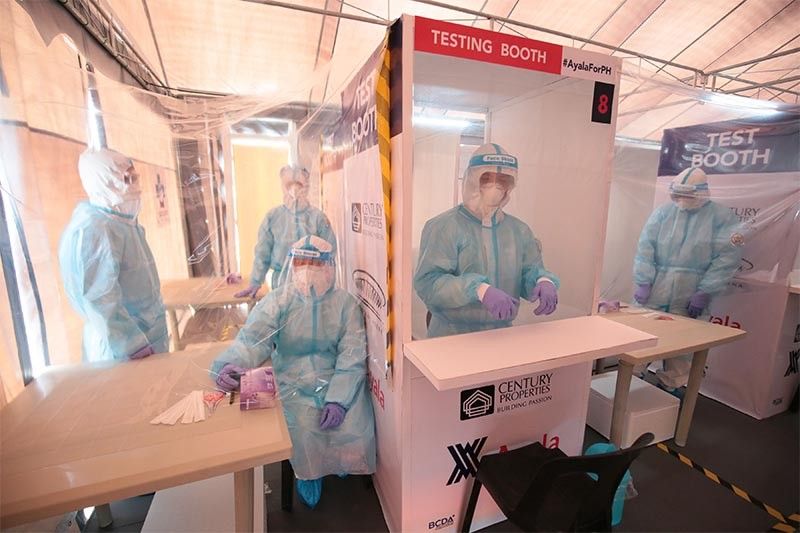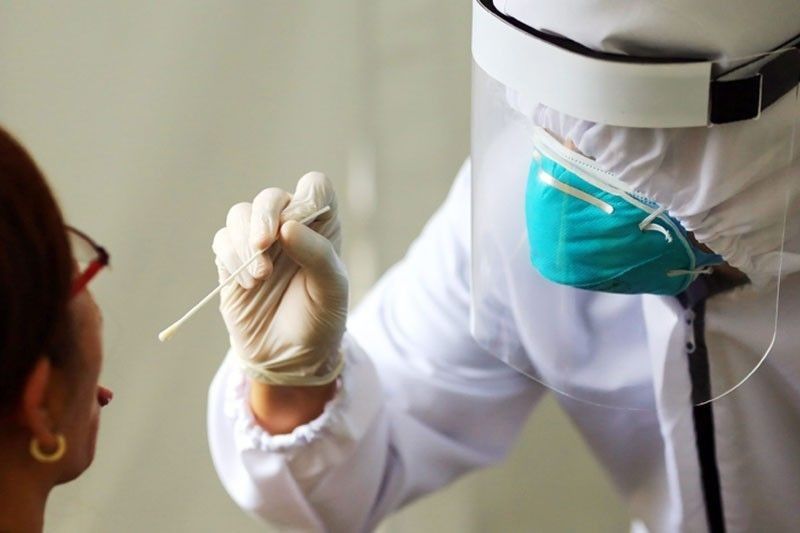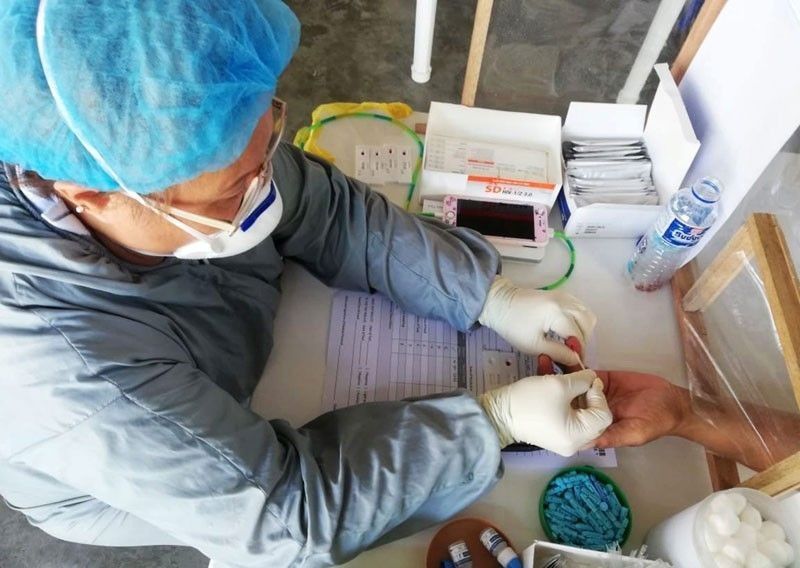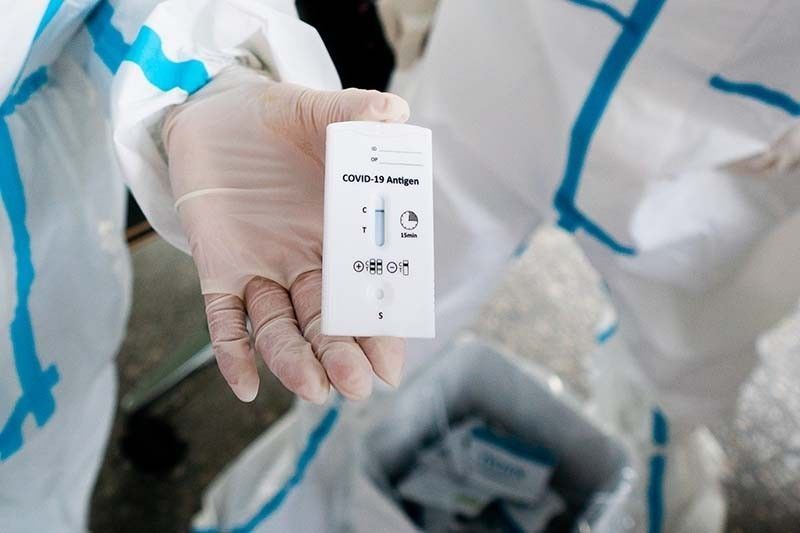Rapid antibody test, antigen test, RT-PCR test: How are they different?

MANILA, Philippines (Updated 3:29 p.m.) — More than six months into the country's pandemic-induced community quarantine, the Philippines is still reporting thousands of cases daily.
Despite this, the Duterte administration is insisting on the further reopening of the economy, with top tourism spots such as the City of Baguio and Boracay island, which started to accept visitors this month.
The Boracay Interagency Task Force (BIATF) last week said that it would be requiring tourists to undergo swab tests before visiting the island.
Baguio is also requiring tourists, limited to those from the Ilocos region for now, to undergo reverse transcription polymerase chain reaction (RT-PCR) tests. However, Health Secretary Francisco Duque III last week announced that the city will also be piloting the use of rapid antigen tests to determine if it can be adopted for official use.
Following this announcement, there are now three different kinds of COVID-19 tests approved for varying degrees of use in the Philippines. But what are these tests and how are they different?
The RT-PCR test

The Reverse Transcription Polymerase Chain Reaction (RT-PCR) test is considered the “gold standard” in testing for COVID-19.
According to the US Food and Drug Administration, the RT-PCR tests are a type of diagnostic test which detects the virus' genetic material. It makes use of nasal and throat swabs to diagnose active coronavirus infection.
The swabs are sent to labs, and results are usually available within the same day.
"This test is highly accurate and usually does not need to be repeated," US FDA's website reads.
RT-PCR tests, however, cannot detect past infections of COVID-19.
All 138 COVID-19 test labs approved by the Department of Health use RT-PCR test kits.
Last week, Health Undersecretary Maria Rosario Vergeire said the department recommended the issuance of an executive order to reconcile the varying prices of RT-PCR tests, which can go as high as P12,000. She said that while there is an existing law which mandates a price ceiling on medicine; it does not cover the cost of diagnostic tests and professional fees.
In a message to reporters, Vergeire said there is still no proposed price ceiling for swab tests. The health official added that small surveys as well as consultations with experts and the trade department will be conducted to determine the price range.
The rapid antibody test

Unlike RT-PCR tests, rapid antibody tests are not diagnostic. Rapid antibody tests cannot diagnose active coronavirus infections at the time of the test or show that a patient does not have COVID-19.
Instead, it detects the presence of antibodies in the blood of people believed to have contracted COVID-19. According to US FDA, the test shows if the patient has been infected by coronavirus in the past.
In August, medical organizations in the Philippines sounded the alarm over the use of rapid antibody tests for screening in the business sector, saying it may have created a false sense of security that contributed to the spread of COVID-19 in the country.
In a virtual briefing held the same month, Usec. Vergeire said rapid antibody tests should be used appropriately for them to be effective.
The antigen test

Similar to RT-PCR tests, antigen tests diagnose active coronavirus infections and make use of nasal or throat swabs.
Antigen tests have quicker turnaround times, according to the US FDA, with results taking up to an hour or less. The agency adds that while positive results of antigen tests are "highly accurate," negative results may need to be confirmed by an RT-PCR test.
This means that antigen tests cannot "definitively rule out" active COVID-19 infection. "Antigen tests are more likely to miss an active coronavirus infection compared to [RT-PCR] tests," FDA said.
In early September, the COVID-19 task force adopted a recommendation by the Department of Transportation to use antigen tests to screen travels on domestic flights. However, after the WHO advised against the use of antigen tests for border screenings, DOH said it would be revising the guidelines for its use.
A week later, the DOH reported that an antigen test kit made by a South Korean company—included in the WHO's emergency use listing—did not pass the evaluation of local researchers.
Last week, Duque announced that Baguio City was chosen to pilot the use of antigen tests, citing its "model governance" in managing the spread of the virus.
"This city will be open to whatever decision of the health department in further enhancing prevention, detection, isolation, treatment and reintegration efforts to combat the spread of the virus," Baguio Mayor Benjamin Magalong, also the country's contact tracing czar, said.
The city government will shoulder the cost of the pilot testing estimated at P1 million. Baguio started accepting visitors from Ilocos region with negative RT-PCR test results starting October 1.
On Monday, WHO announced that some 120 million rapid antigen tests for COVID-19 will be made available to poorer countries at $5 each — if the organization can find the money. WHO the week before issued the first emergency-use listing for a quality antigen-based rapid diagnostic test (RDT), with others expected to follow.
The state of testing in the Philippines
Latest data from the health department shows that there are now 314, 079 COVID-19 cases in the country, over 54,000 of which are active. The death toll is at a grim 5,562.
DOH has logged 3,563,303 samples tested as of September 30. This is about 3.2% of the country's population. The country's cumulative positivity rate is 10.3%, according to the health department.
On Friday, the Philippines was listed by Johns Hopkins University's Coronavirus Resource Center and the Worldometers cite as the 20th country with the most COVID-19 cases in the globe. The Philippines also has the largest caseload in Southeast Asia.
According to Statista, a business data platform, among the 31 countries most impacted by coronavirus, the Philippines is 25th in the number of tests conducted. The data platform said the Philippines has only conducted only 33,772 tests per million of its population.
To contrast, Israel, which is listed by Statista as having the 24th most cases in the world, tops the list of the most tests conducted, having administered 380, 272 tests per million of its population. — with reports from Gaea Katreena Cabico and The STAR
- Latest
- Trending

































